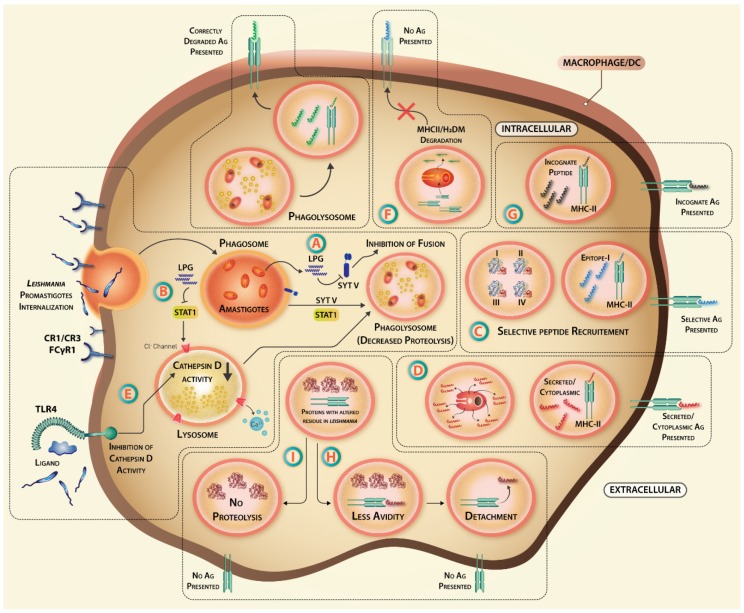Figure 3.
Leishmania-dependent factors affecting antigen priming leading to inefficacy of vaccination. Upon entry into the macrophages, (A) Leishmanial lipophosphoglycan (LPG) inhibits fusion of phagosome with lysosome via inhibition of SytV recruitment. (B) It also inhibits STAT-1, which is responsible for maintenance of conductivity of Cl- ion channels for phagosomal acidification following phagolysosome formation. (C) Amastigote-expressing proteins, which have high turnover during infection, can trigger intracellular competition among the peptides and influence determinant selection. (D) Cytoplasmic and secretory proteins of parasites have better chances of being processed and presented, inducing a bias towards the antigens to be predominantly presented to T cells. (E) TLR4-induced inhibition of Cathepsin D activity may reduce protein processing ability. (F) MHC-II and H2-DM molecules are taken up by amastigotes inside phagolysosome and degraded. (G) Infection-induced loading of incognate peptides instead of Leishmanial peptides can affect antigenic loading on MHC molecule. (H,I) Leishmanial antigens that may have substitutions in anchor residues or protease cleavage sites may either bind weakly to MHC-II, become resistant to action of proteases, or may function as altered peptide ligands, if selected for presentation to T cells.

